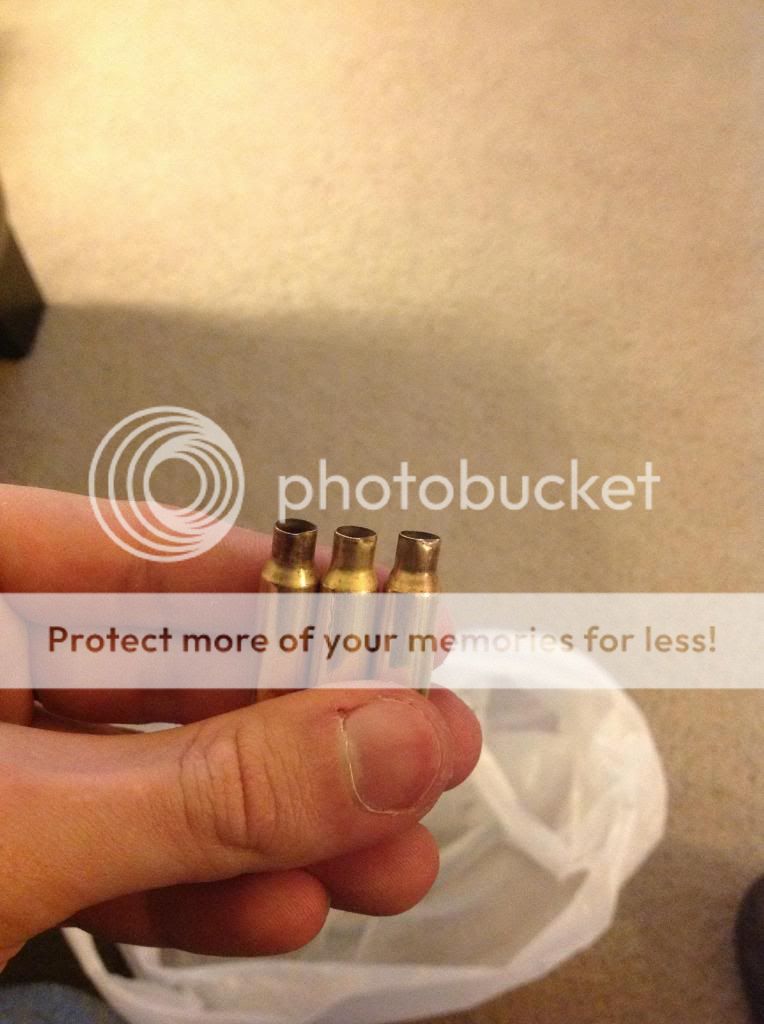The damage on the necks on those alone- look like they would split at the mouth at first firing. Ive seen that happen before.
I'd like to think after a resize though you wouldn't even be able to tell about the neck. From googling "reload sig 556 brass", many do and we all have the neck issue. I guess try one out and see if it splits?. At least I get two shots out of it haha. As for the body I didn't have a buffered side to lessen the blow (I know better now) so next time they should look better like the OP's.
If I do decide to scrap these...how about for 300 blackouts? A die that can run down the whole length should make it perfect again no? Of course the die needs to not form a new neck.




